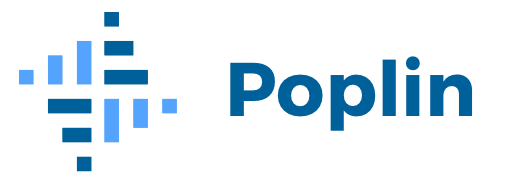FAQ
What is the Poplin project?
The Poplin project seeks to develop cohesive, free, open-source APIs for states to use in developing a modern, modular Medicaid IT system. Like the poplin fabric that is commonly used to create scrubs for clinical staff, it is our hope that the Poplin project serves as the underlying connective fabric for future Medicaid IT systems.
Why does the Poplin project exist?
The Center for Medicaid and CHIP Services (CMCS) would like to encourage IT Vendors to provide states with modern, modular, targeted Medicaid IT solutions. Poplin’s goals are:
- Enable fine-grain modularity
- Promote reusability, interoperability, and innovation
- Support migration paths
- Establish a trust framework for nationwide information exchange
Who could benefit from using or joining the Poplin project?
Any organization affiliated with Medicaid IT systems stands to benefit from the use of Poplin APIs. Currently, we are targeting these organizations in particular:
What are the Poplin APIs?
The Poplin APIs establish service definitions, data transfer methods, and file standards. This allows vendors to focus on building those services and allows states to build an MMIS system from multiple interoperable modules. Service definitions leverage a number of standards, including UML, SysML, UAF, OpenAPI Specification, FHIR, and MITA 3.0
How does the Poplin project operate?
The Poplin Working Group of the MITA Governance Boardstewards the Poplin project. This working group represents a cross-industry body with a growing number of members from the private, public, and non-profit sectors. The Poplin project has created alliances with the Medicaid Technology Alliance, the New Jersey Innovation Institute, MITA-TAC, the Private Sector Technology Group, the Da Vinci Project, the CARIN Alliance, and Blue Button 2.0.
How can I contribute to the Poplin project?
There are several ways you can contribute to the Poplin project:
- Join our weekly call - contact the administrator for an invite
- Email general questions or comments to our discussion list
- Ask and answer questions on our slack channel (after you contact an administrator for access)
- Submit a pull request via Github
